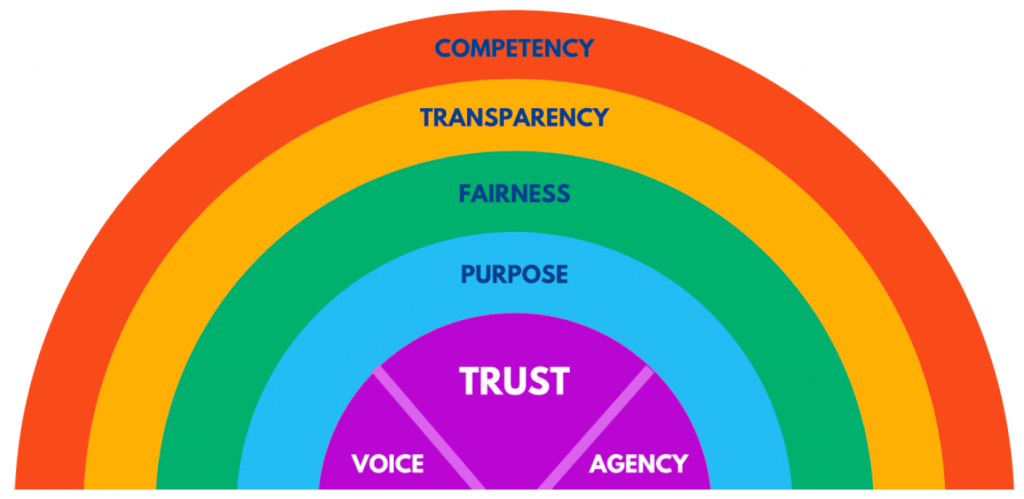Digital
Bringing Ethics to the Forefront
September 23, 2021 by deborahamzil No Comments | Category Data, Digital Ethics, Digital Scotland
A blog by the Data & Intelligence Network(D&IN) comprised of Scottish Government and our partners.
The Data & Intelligence Network (D&IN) was established in May 2020 to provide evidence-based, objective analysis to inform local and national decision-making in response to COVID-19 outbreaks.
Our framework
Due to the complexity that often can accompany sharing data and data systems, alongside the need for rapid and responsible use of information to manage the pandemic, it was agreed to develop the D&IN Ethical Framework to support ethical decision making. The Ethical Framework is founded on a set of core values and principles that seek to embed transparency and trustworthy practices for use by project teams across Scotland’s public sector. It can be applied to strategic decisions or to help frame problems or solutions for when members of the D&IN are seeking to use data or digital technology. Providing a practical tool to help teams work through the moral and social dilemmas at the earliest point in their work so that the task of reconciling the privacy, rights and freedoms, are at the heart of decision making, promoting responsible and proactive use of data and technology.
Supporting ethical decision making
To make our framework easier to use we have created an Ethics Workbook, which was designed in partnership with The Data Lab, who brought their practical ethical expertise from The Data for Children Collaborative with UNICEF to consult on and facilitate this piece of work. The Workbook is a core element of project design and delivery, a place where project teams can set out very clearly the public benefit and potential harms candidly and early enough in the process so that they can incorporate ethical decision-making from the outset. Project owners should also continue to refer to the Ethical Workbook throughout the project to highlight and address potential issues during the entirety of the project lifecycle.
It is recognised that the scale and scope of projects undertaken vary widely: some have a short time period, while others may have a profound and potentially long-term impact. The Workbook is designed to help identify the scale of the work and any risks and benefits associated with this early in the process so that any public engagement can be taken into account in an ethical, appropriate and proportionate way.

What does this mean for other information governance processes?
This does not replace the vital information governance systems or the need to comply with legislation, instead the framework asks teams working on projects to focus on the implications of their work for the benefit of the public, and where possible involve people in ways that make sure their data is being used to improve services and deliver robust insight in a manner they are comfortable with.
In summary
In summary, the Ethical Workbook acts as a guide to provide project owners with a practical way of thinking about how their project will have an impact on the people of Scotland.
We hope you found this an interesting insight into how we are striving to make the most of Scotland’s data whilst ensuring we do so in the right way, for the right purposes.
If you are interested in finding out more about the work of the D&IN, our Ethics Framework or think you could help us improve further then please get in touch with us at data.intelligencenetwork@gov.scot.
Tags: Data, Data and intelligence network, digital, Digital Scotland, scottish government

Leave a comment